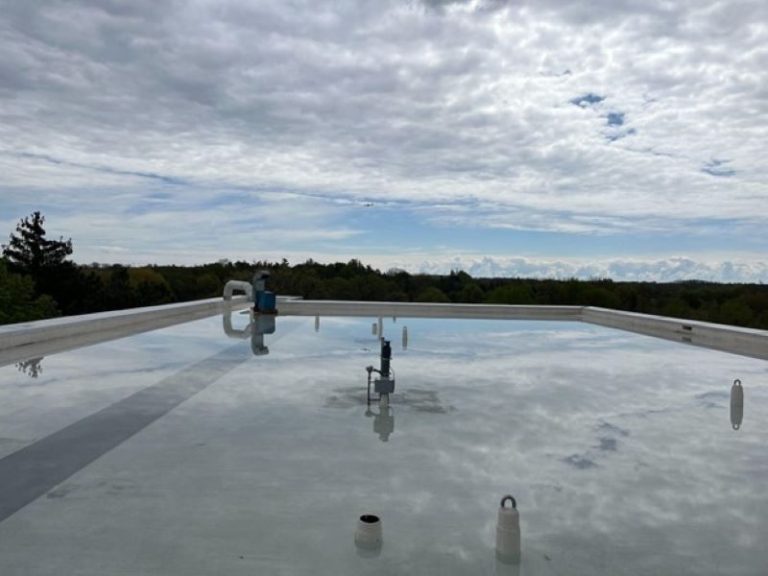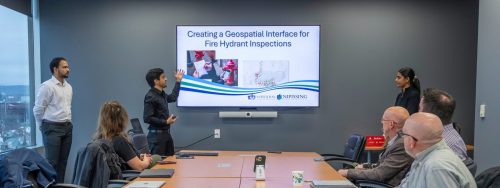
“Smart Blue Roofs” – innovative systems that store rainwater on rooftops to prevent urban flooding, support non-potable water reuse, and reduce energy costs – have been pioneered through a partnership between Toronto Metropolitan University and Credit Valley Conservation. This green infrastructure is delivering benefits to cities like Mississauga, helping local governments reduce stormwater runoff, enhance climate resilience, and improve environmental sustainability.
Communities stand to gain more than just flood mitigation: these systems can power toilets and irrigation and provide cooling through evaporation — essential in combating urban heat islands (where urban areas become significantly warmer than surrounding rural areas, especially at night). The collaboration is also looking into water quality, testing microbial levels across treatment cycles to challenge existing building code restrictions. By showing that water can safely be stored longer than 24 hours with effective treatment, this research could unlock greater operational flexibility and efficiency for municipalities.
The next phase aims to advance the building code and expand Smart Blue Roofs from individual buildings to whole neighbourhoods, effectively reducing flood risks city-wide and fostering climate-resilient urban design. By collaborating with engineers, architects, public health experts, and policymakers, this will help communities adopt scalable, science-backed infrastructure solutions, and transform environmental innovation into tangible community resilience.
For more information, visit Toronto Metropolitan University.


